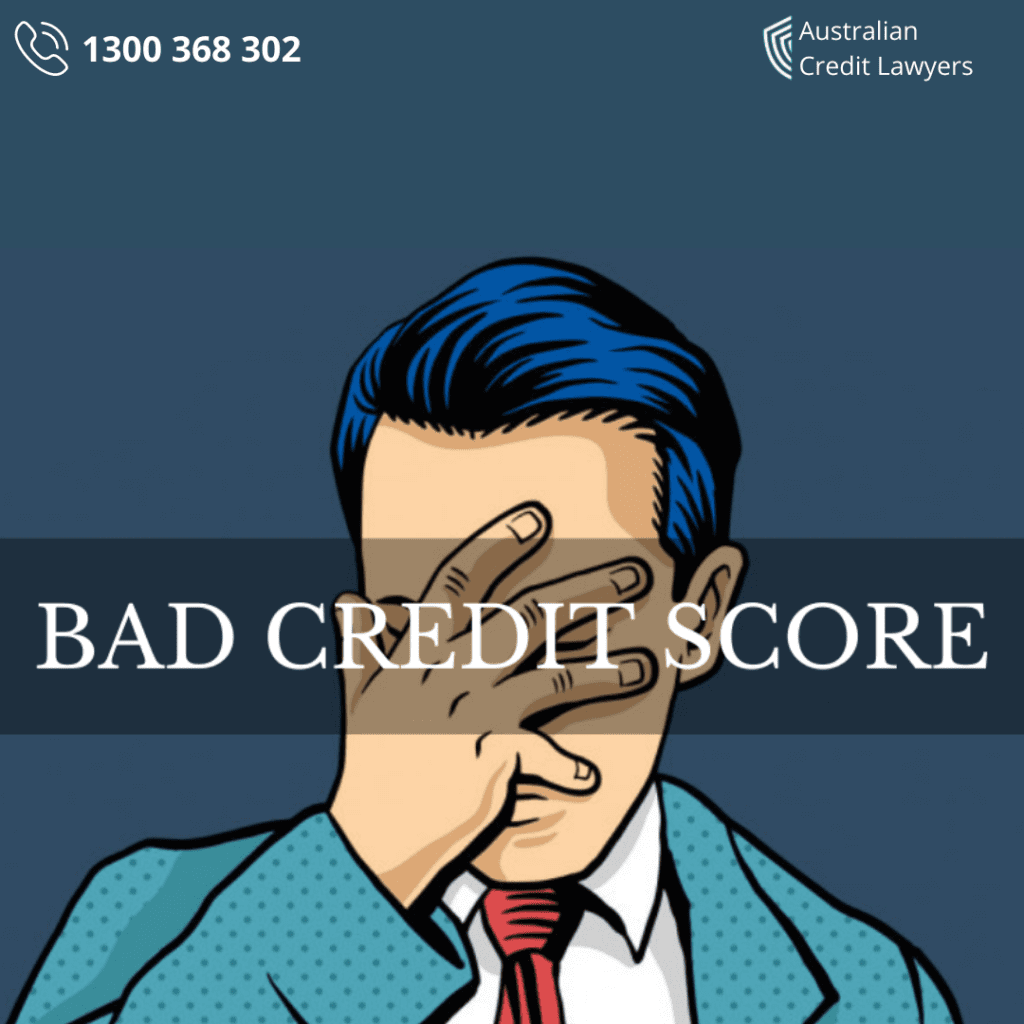Credit File Fix: Credit Repair Advice
No matter how good you are at budgeting and saving money, credit repair can’t be avoided sometimes. You could have a poor spending habit, a broken car, a medical emergency, an unexpected job loss – any number of things thrust upon you can affect your credit rating. Credit repair tips for fixing credit files fast will help you get out of debt more quickly!
There is hardly anyone who isn’t worried about their credit score and doesn’t want to make sure it’s as high as possible. Credit ratings influence our life in a variety of ways. Including how we purchase a home, establish a bank account, or find a new job.
People with bad credit records are having a hard time getting approved for new credit cards or loans. It can be difficult for these people to fix their credit. Due to the challenging process that involves plenty of paperwork and long hours spent on calling your creditors.
If something happens and you receive less than favourable results on your credit report, don’t panic; you can fix bad credit file relatively fast!
Understand the mistakes that are keeping you with bad credit

To maintain your credit score as high as possible, avoid committing the following five errors.
Your credit score may be the most significant grade you’ll ever get in your life. It determines the credit cards you are eligible for, the interest rates on your loans, and even the employment you are qualified for. If you want the most excellent financial possibilities, you must maintain the highest possible score.
It takes time to build a solid credit history. But a single poor choice may destroy it in a single day. Here are five credit blunders you don’t want to make.
Failure to pay debts on time
An essential element in establishing your credit score is your payment history. It demonstrates to lenders your financial responsibility and ability to sustain your lifestyle.
A single late payment may not seem to be a significant issue, but it is. According to FICO statistics, a 30-day late payment may reduce an otherwise great credit score by more than 100 points. If you have several late payments or a 60- or 90-day late payment, the penalties are considered severe.
Some card companies may additionally charge you a penalty APR, which accelerates the accrual of interest on any outstanding debt. Once you’ve been given a penalty APR, it’s tough to get rid of it. And some card companies will keep it in place forever.
Whether you struggle to remember to pay your bills on time. Check if you can set up automated payments or set yourself reminders. If you know a bill will be late for a few days, contact the creditors you owe. Explain your circumstances and ask that this information not be sent to the credit bureaus. If you’ve been a responsible payer up to that time, they may agree.
Making just the minimal credit card payment
Making the minimum credit card payment avoids the card issuer reporting a late payment. But any leftover amount will continue to accumulate interest.
Credit cards may have APRs of 30% or more, which can rapidly lead your debt to grow. Many individuals have trouble getting out of credit card debt after they have gotten into it.
This may set you back hundreds of dollars and put you behind on your other obligations.
Carrying a debt increases your credit usage percentage as well. This compares the amount of credit you use each month to the amount you have available. Ideally, you should keep this below 30%. A greater credit usage percentage suggests that you are living beyond your means. Which makes lenders reluctant to deal with you.
If you already have credit card debt, attempt to pay it off as quickly as possible. Change your debt to a card with a 0% interest rate. Initial APR to restrict its growth and reduce your discretionary spending.
Every month, put all of your extra money toward your credit card debt until it is paid off. If you receive an annual bonus or a tax refund, use it to pay down your debts.
Using credit cards to the limit
For two reasons, maxing up your credit cards is a bad idea. First and foremost, you will have a high credit usage ratio. Other lenders and credit card companies will be hesitant to deal with you. Since your excessive dependence on credit suggests that you may struggle to repay any money they give you.
Maxing out your credit card may also result in a penalty APR. Which, as previously stated, increases your debt to accumulate interest quicker and may be difficult to get rid of.
Frequent credit application
Your lender will do a rigorous credit check on your credit report anytime you apply for a new line of credit or loan. This reduces your credit score by a few points. But if you’re accepted, your new lower credit usage ratio will offset this.
However, if you regularly apply for new credit, those tiny credit hits will start to pile up over time.
Because credit score firms recognize that consumers prefer to shop around for new credit. All credit inquiries that occur during a 30-day period are generally treated as a single inquiry.
If you plan to apply for a new loan or credit card, make sure you submit all of your applications. Within this time frame to avoid a second credit inquiry appearing on your report.
Getting rid of outdated credit cards without thinking about the implications
The average life span of your credit accounts also has an effect on your credit score. A lengthier credit history provides lenders with a greater knowledge of how you manage your finances, allowing them to make more educated choices.
When you reject a credit card account, it is eliminated from the computation of your average credit age. If you have held the card for a long, this may substantially reduce your average account age and may harm your credit score.
Of course, there are occasions when it makes sense to close the card. If it has a high yearly cost and you seldom use it, it’s definitely worth the little credit hit to cancel it.
However, if there is no annual charge on the card, you may be better off keeping it in your wallet even if you never use it.
By avoiding these five traps, you can keep your credit score high and lenders interested in working with you. If you’ve made any of these mistakes, correct them as quickly as possible and be aware of the consequences.
It may take some time, but regardless matter how low your credit score has fallen, you may raise it over time.
Ways to Fix Bad Credit File Quickly
1. Examine Your Credit Score and Credit Report
Your credit report includes information on how you’ve utilized credit over the last ten years. Each of the three credit agencies has one copy of your credit report: Equifax, Experian, and Illion. Most of the creditors report to all three, but not all, it’s critical to double-check the information on all three reports.
Your credit report is utilized to determine your credit score, so make sure you check it as well. We suggest that you check your score once a month.
2. Correct or dispute any errors
Unfortunately, credit bureaus make mistakes from time to time. According to one research, one-quarter of individuals had mistakes on their credit record, and 5% had flaws that might have made obtaining a loan more expensive.
While understanding your credit report and credit score is a good starting point, it is also critical to check for mistakes. If you find any, disputing them and having them removed is a very easy procedure.
3. Always make on-time payments on your bills.
Your payment history accounts for 35% of your credit score. So, if you want to repair your credit, you should concentrate on resolving your monthly payments. While it may seem difficult to pay all of your payments on time, there is a simple trick to do so.
If you’re concerned about overdrafts, we suggest creating a budget and/or arranging your autopay at the same time you are paid.
4. Maintain a credit utilization ratio of less than 30%.
By comparing your credit card balances to your total credit card limit, you may calculate your credit usage ratio. Lenders utilize this percentage to determine how well you handle your money. A ratio of less than 30% to more than 0% is usually regarded as acceptable.
Assume you have two credit cards with individual credit limits of $2,000 each and $500 in outstanding balances on one of them. The credit usage ratio for you would be 12.5 per cent. In this instance, add together your outstanding debt ($500) and divide it by your entire credit limit ($4000).
5. Pay Off Your Other Debts
If you have unpaid bills, paying them off may help you improve your payment history and lower your credit usage percentage.
Consider the debt avalanche or snowball technique while preparing to repay your credit card debt. The debt avalanche approach prioritizes repaying high-interest cards first, while the snowball method prioritizes settling the lowest amounts first. Determine which technique is ideal for your circumstance by weighing the pros and cons of each.
If you want to repay loan debt, keep in mind that you may see a short drop in your credit score. However, Experian assures that this will enhance your credit score in the long run.
Learn how to fix bad credit file quickly, safely, and legally.
Bad credit may be created for a variety of reasons, one of the most significant of which is a lack of information about how to fix it. If you are having trouble with your credit and are unable to restore it, legal assistance may be able to assist you.
If you’re having trouble being accepted for a new credit card or are about to lose your existing one, speak with a local credit lawyer. There are many factors why you may be in risk of losing your credit card, regardless of whether your assets are more valuable than your debt. Seek urgent legal advice to protect your rights.
It’s essential that you communicate with your lawyer effectively about the steps you are taking to safeguard your financial interests and those of your family members.
Related Subjects: Fix Your Credit Score Easy Steps!
When was the last time you double-checked your credit report?
Errors on your credit record may lower your credit score. Today, click to improve your credit report.

Conclusion
Get your credit repaired with these expert tips. If you have a bad credit score, a low credit limit or you are paying a high-interest rate on your loan, you need to take care of it as soon as possible. It is necessary to analyze the relevance of having a bad credit score and how it can affect your finances in the future.
The very best step that you need to take is to evaluate what caused your poor credit score and then seek help from Australian Credit Lawyers who specialize in these matters. They will be able to provide you with tips on how to fix your credit file fast and get back on track with financial success.
Credit report errors are usually the result of a minor mistake or misunderstanding by one of the many credit reporting agencies. You can fix these errors by contacting an Australian Credit Lawyer who can help you get back your good credit score.
With the assistance of an Australian Credit Lawyer, you can fix errors on your reports, identify mistakes that are not on your report, or even have any negative items removed from them entirely.
Apply for your FREE CREDIT ASSESSMENT now!
